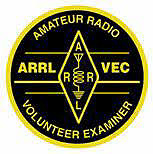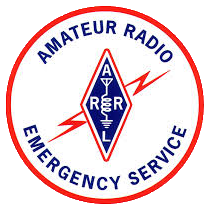Amateur Radio & EMCOMM Law
- Details
Amateur Radio is unique from other hobbies in that being licensed carries certain duties and authority extended to it in the name of public safety.
Unlike other hobbies that are licensed (hunting, fishing, pilots, and others), amateur radio operators are given special privileges during emergencies solely because of the unique nature of our hobby.
We are governed by Title 47, Part 97 (which we normally just refer to as Part 97) which explicitly states: (a) Recognition and enhancement of the value of the amateur service to the public as a voluntary noncommercial communication service, particularly with respect to providing emergency communications.
Most of us know about our charge to use our skills to provide assistance in an emergency. But did you know the law actually empowers us to operate outside of the Amateur Band during emergencies? To be clear, to be classified as an “emergency” life and/or property must be in
Join Carroll ARES
- Details
Carroll County Amateur Radio Emergency Service (ARES) is always looking for new members.
Emergency Communications is a part of the service amateur radio operators return for the allocation of radio frequencies to our hobby, and ARES is one of the several ways to serve. ARES is intended to be a resource for:
- Hospitals
- Local, Regional, and State Agencies
- National Weather Service (SKYWARN)
- Other NGOs (Non-Governmental Organizations)
- Community Events
I hope you'll take the time to join us on our weekly net, on the N4FWD repeater (146.640-131.8) on Thursdays at 8:00PM.
Emergency Communication Techniques
- Details
EMCOMM techniques are different from everday communications because of the stress, competing demands, and uncertainty that surrounds the sudden onset of an emergency. Life and death communications are not part of our daily experience. In an emergency, any message may literally affect the lives of patients, stranded civilians, or shelter inhabitants. An unclear message, or one that is altered, delayed, misdelivered, or lost can have disastrous results.
Listen
Listening is half of an emergency communicator's job. You can't communicate the a message if you don't actually hear it. You must learn to focus on receiving the message and tune out distractions.
Sometimes the job of listening is made more challenging because you are operating in a noisy environment or there may be static or interference on the frequency.
Speak Clearly
How you use your microphone seems simple, but there are many things that could affect how well your audio sounds. Each microphone has different pickup characteristics and the radio may applify the signal differently. In theory, the optimum method of transmitting is to hold the mic close to your cheek, and just off to the side of your mouth. Talk across, rather than into, the microphone. This will reduce breath noises and "popping" sounds that can mask your speech.
Always speak in a normal, clear, calm voice. Speaking loudly can result in over-modulation and distortion, and will not increase volume at the receiving end. Remember to speak slowly when communicating a message and at a regular pace when communicating tactical traffic.
"Voice operated transmission" (VOX) is not recommended for emergency communication since background noise or an impromptu discussion can trigger it.
When using a repeater, be sure to leave a little extra time between pressing the push-to-talk switch and speaking. Signal detect time, CTCSS (often called pl) decode time, transmitter rise time create a delay between the time you key the microphone and the repeater is retransmitting your words. A short pause after keying the microphone will ensure that your entire message is transmitted, avoiding time-wasting repeats for lost first words.
Lastly, pause a little longer than usual between transmissions any time there is a possibility that other stations may have emergency traffic to pass. A count of "one, one thousand" is usually sufficient.
International Distress Frequencies
- Details
Most distress frequencies fall within the HF spectrum. Many HF radios will operate, at least in receive mode, outside of the amateur band, allowing us to monitor those frequencies. In addition, there are actually recognized Amateur Radio Distress Frequencies.
For most of the history of radio communications 500 kHz has been the recognized international distress frequency for sea. While it is supposedly still monitored, it has ceased to be used as a primary sea distress calling frequency as of 2010. Other frequencies are being officially phased out, but that doesn't mean someone might not attempt to use it, especially if that's all they have.
Aircraft utilized 121.5 mHz and 243 mHz, usually monitored by commercial aircraft and airports. These were also monitored by satellite but was discontinued in 2010, partially due to the high number of false alarms. These systems are still used in General Aviation aircraft. Maritime vessels also use 156.8 for short-range distress communications, similarly phased out in 2010.
Net Control Operator Best Practices
- Details
Types of nets:
|
Open Net |
Stations call each other and directly pass traffic. A typical example would be a Tactical Net or our Stand-By Weather Nets. |
|
Directed Net |
Stations only call Net Control directly. Passing of traffic is controlled by Net Control station. |
How a directed net works
A directed net has an active Net Control station who coordinates traffic. The ARES/EMCOMM net is an example of a directed net. Stations wishing to deliver a message or pass information would first call Net Control, and when acknowledged, make your request. Net Control will then coordinatethe passing of traffic or
Page 9 of 12




